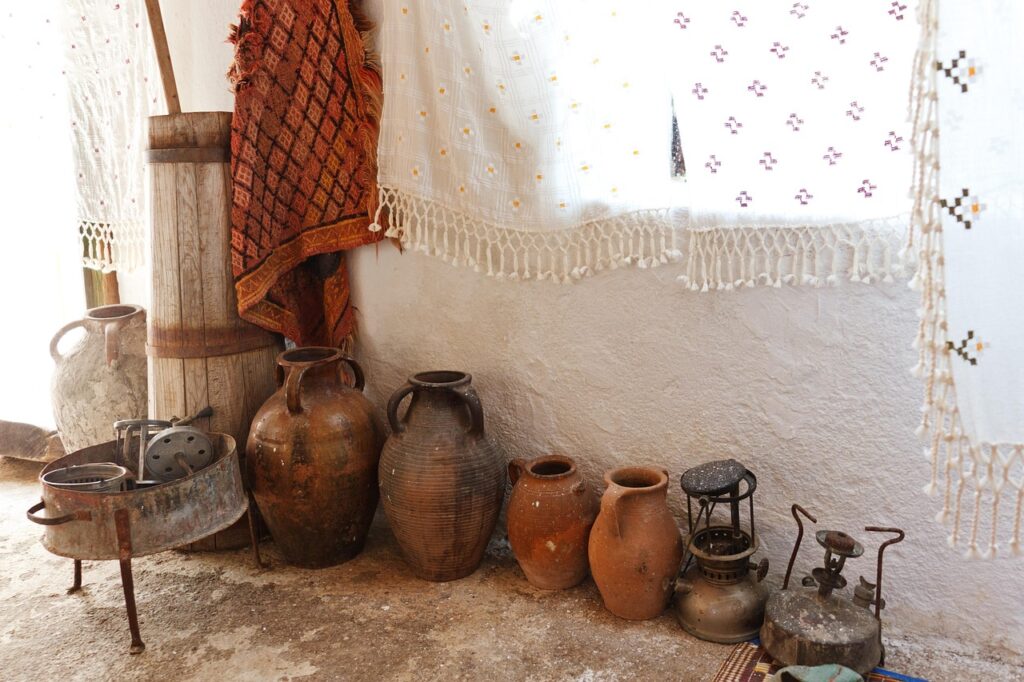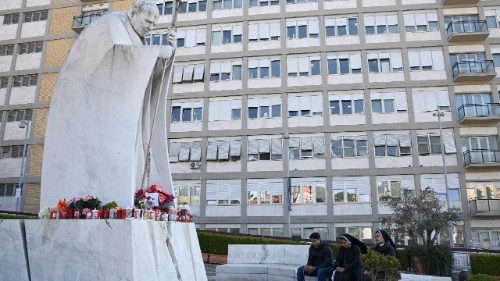Reflection by Monsignor Enrique Díaz: “Cracked Vessels”
Second Ordinary Sunday

Monsignor Enrique Díaz Díaz shares with the readers of Exaudi his reflection on the Gospel of this January 19, 2025, entitled: “Cracked Vessels”
***
Isaiah 62, 1-5: “As a husband rejoices with his wife”
Psalm 95: “Let us sing the greatness of the Lord”
I Corinthians 12, 4-11: “One and the same Spirit distributes his gifts according to his will”
Saint John 2, 1-11: “The first sign of Jesus, in Cana of Galilee”
With this Sunday, we practically begin ordinary time. The Christmas holidays have passed, which we closed with the celebration of the Baptism of Jesus, and we return to the daily routine, to the chores of every day, to the struggle of hidden and unknown work. We return home. However, this time is of great importance, it is the basis of all life, it is sowing quietly, it is putting one brick on another until the building grows, it is searching, praying, working, building. Hopefully this ordinary time will not be synonymous with boring time, empty and meaningless time. Great works are done through perseverance, by filling every minute with meaning, by loving in silence, by listening, by participating, by receiving. Saint John offers us a very beautiful and meaningful text that can help us understand how to follow Jesus, how to participate with Him, how to know Him and how to love Him. The wedding at Cana contains many teachings and signs that will greatly help us in our daily journey.
Jesus likes to compare life to a banquet and Saint John begins his gospel by presenting Jesus, his mother and his disciples at a wedding. It is a fundamental sign that explains the presence of the Kingdom in the midst of history in everyday life. The festivals of our people, those festivals without labels or exclusivity, are the best image and sign of that other “festival” and “banquet” in which we are all called to participate. There, in apparent anonymity, as one more of the people, Jesus participates with his mother and his disciples. But at the best of the party, the wine runs out and no one seems to notice. How is it possible that the essentials of coexistence end before the party? And yet it happens. Perhaps St. John is telling us that in the people of Israel and in our world the most important thing is missing, we neglect it and do not pay attention to it. Also in our days, the wine of understanding, love and mutual help is scarce. We forget that we are called to participate in a banquet in the company of everyone, and we let ourselves be deluded by a system that forces us into fierce competition and selfish struggle, depriving us of the most important thing, which is love and brotherhood among all.
Mary, the silent and attentive Mary, is the one who notices what is missing. Like many mothers, she notices that “something” is missing, that “something” that is the most important thing in the house. Mary cannot remain indifferent to the situation of shame and sadness that is approaching, and proposes the solution. First, by pointing out the lack of wine before Jesus and then proposing to the servants: “Do whatever He tells you.” This is the solution to the real problems: first, to realize and be conscious of them and present them before God, but secondly, to seek solutions in accordance with what Jesus wants. “Do what Jesus tells us” is the message for the Christian in all its simplicity, so that the party continues to be joyful for everyone, so that we can truly enjoy the new wine, these new times and new social reality that Jesus proclaims. And what Jesus says is not what society announces. The message of Jesus is based on brotherhood and announces a table to which everyone can approach, from which everyone can feed. Very different from the joy that is sought in one’s own satisfaction and that turns its back on those who suffer because of the crisis and despair. There are many families who suffer from extreme poverty and are in a continuous struggle to survive, faced with society’s contempt for their aspirations and suspicions. Their difficulties are insurmountable for them, inherited from previous generations, with family dramas and tragedies that fill them with despair. Mary does not remain indifferent, nor can the true Christian remain indifferent.
St. John, attentive to the symbols, insists that there are six vessels: an imperfect number; they are heavy, because they are made of stone; empty, although they would have a great capacity; destined for purification. Jesus asks that these vessels that have lost their meaning, that are cracked, that let life escape, be filled with water, but not destined for purification, but destined to be transformed into life, joy, coexistence, shared happiness for the newlyweds. Perhaps we could also see a symbolism of our current families, where the true meaning of life, of community and of sharing is being lost. Where we let love escape through our cracked vessels, where selfishness is sought more, where true love is lacking.
Today, family and marriage are seriously questioned, and the home is easily abandoned under any pretext, leaving empty hearts, huge holes and frustrations that become serious dangers for society, hatred and divisions. The presence of Jesus in Cana revalues marriage in its essence and gives great importance to true love.
There are many symbols that St. John offers us in this passage. Let us contemplate this first miracle of Jesus with wonder, allowing ourselves to question the depths of our lives. Let us ask ourselves if we have not lost the joy and meaning of life, if we are losing the ability to share, if we are turning our backs on needs. We, too, need to fill our cracked vessels with the water of our effort and our faith, so that Jesus may transform them into wine of joy, life and generosity.
Father God, who has symbolized your love for all men at the banquet of the Kingdom, open our eyes, enlighten our minds and inflame our hearts, so that our poor works, transformed by the strength of Jesus, may be signs of love, joy and brotherhood for all men. Amen.
Related

Pope Francis spent a peaceful night
Exaudi Staff
02 March, 2025
1 min

Pope Francis has had a peaceful night
Exaudi Staff
25 February, 2025
1 min

What should the boyfriend or girlfriend I should find be like?
Patricia Jiménez Ramírez
24 February, 2025
4 min

The Pope spent a quiet night at Gemelli
Exaudi Staff
23 February, 2025
1 min
 (EN)
(EN)
 (ES)
(ES)
 (IT)
(IT)

